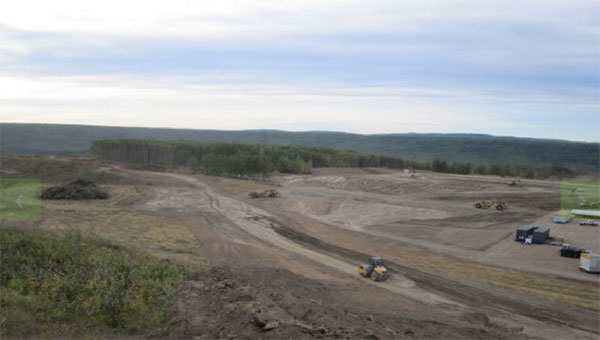Opinion: Site C's bill of goods carries a hefty price tag
Difficult to imagine them getting caught dead in the same room a few weeks ago, but to paraphrase William Shakespeare, “Site C acquaints a man with strange bedfellows.”
The list of supporters includes the Canadian Taxpayers Federation, B.C. Building Trades, Christian Labour Association and the Progressive Contractors Association.
They all seem to think they’ve won something too, which is going to be fun to watch when the honeymoon is over.
When former Premier Gordon Campbell announced plans to move ahead with Site C in 2010, he justified the $6.6 billion cost by focusing on demand: “The decision to pursue Site C comes at a time when B.C. Hydro forecasts that B.C.’s electricity needs will grow by 20 to 40 per cent over the next 20 years.”
There’s a long ways to go to hit even the low end of Campbell’s forecast.
B.C. consumed 62,467 gigawatt-hours of electricity in 2010. Last year, it had jumped to 62,951 gigawatt-hours, an increase of 0.8 per cent.
But that’s only seven years. How about two decades? B.C. was home to 3.9 million residents in 1996, there were 1.5 million households across the province, GDP had hit $139.9 billion and we consumed 64,664 gigawatt-hours of electricity.
By 2016, B.C.’s population was 4.75 million, there were 468,000 more households, GDP had risen to $240.8 billion and we consumed 1,713 less gigawatt-hours. In 15 of the last 20 years, we’ve used less electricity than we did in 1996.
Then there’s the matter of settling the bill.
Following the B.C. government’s 2014 announcement, Kieron Stopforth – a lead hydro analyst at Bloomberg New Energy Finance – observed that “The cost range for most large-scale hydropower plants around the world is between $1 million and $6 million per megawatt. That compares with more than $7 million for Site C.” And that was when the cost was $8.8 billion.
How much faith can we have in the new $10.7 billion estimate?
In a 2016 study, University of Oxford’s Said Business School professor Bent Flyvbjerg and Harvard Law professor Cass Sunstein examined 2,062 global infrastructure projects and found that the cost-benefit ratio was “typically overestimated by 50 to 200 percent” and that the information behind the ratio analysis “so misleading as to be worse than worthless, because decision makers might think they are being informed when in fact they are misinformed.”
But Horgan has a plan.
Buried in a backgrounder to the government’s announcement news that “EY Canada has been retained by BC Hydro to provide dedicated budget oversight, timeline evaluation and risk assessment analysis for the duration of the project.”
A little over a year ago EY Canada – better known as Ernst & Young – gave Site C a clean bill of health stating the project was “on time and on budget.”
There was a catch. Ernst & Young came to its conclusion relying solely “on information provided by (Hydro). We have not audited, reviewed or otherwise attempted to verify the accuracy or completeness of such information.”
In the very week that B.C. was committing to push ahead with Site C, Alberta auctioned off 595 megawatts of renewable energy capacity.
The “weighted average bid for wind energy was 3.7 cents a kilowatt-hour or $37 per megawatt-hour.”
Site C will provide roughly 4.6 million megawatt-hours of power annually. Harry Swain – former chair of the Site C joint review panel – estimated the cost at $95/MW-Hour in 2016, when it still had an $8.8 billion price tag.
Site C will come home to roost. Pity the premier it falls on.
Will higher energy costs lead to greater conservation, thereby, negating any rate increases? Will it deter new businesses from opening up shop in B.C.?
British Columbians likely fall into one of three groups when it comes to Site C: those adamantly opposed, those fiercely in support and the rest biting their lips in fear.
One thing most will likely agree on, however, is that this can’t happen again. No government should leave another government in such circumstances and on that point Horgan was largely silent.
Last December, the B.C. NDP had a Facebook post, it read: “Site C will be yet another cost burden for British Columbians, their children and grandchildren.”
After last week’s revised forecast probably a safe bet to tack on great-grandchildren as well.
Dermod Travis is the executive director of IntegrityBC.

























